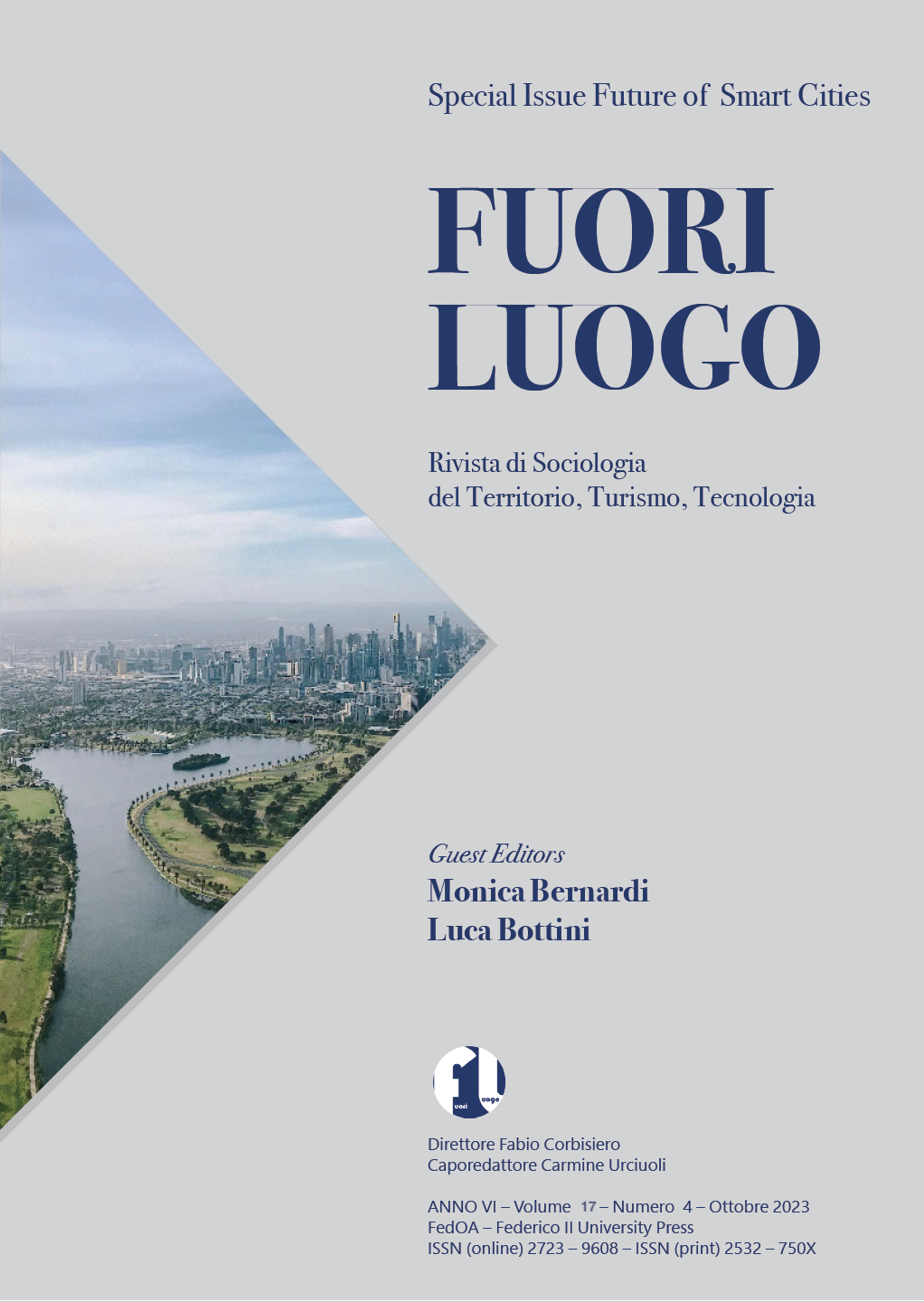The Future of Smart Cities and the Role of Neighborhoods in Influencing Sustainable Behaviors: a General Overview
Abstract
The neighborhood certainly constitutes the founding element of the entire urban fabric of a city. It is, so to speak, the smallest territorial component endowed with social autonomy and identity that can be recognized and identified in the city. Neighborhoods, in their specificity and different social, cultural and architectural characteristics, represent the propeller capable of fueling that energy that defines the multidimensional soul of a city. Social vitality, community participation and a good urban living environment are three factors which may boost residents’ virtuous practices, useful to improve the quality of life of resident populations. These practices not only reside in fostering collective actions aimed at supporting, for example, social cohesion, volunteerism, associations and behaviors in favor of social well-being, but we can also identify behaviors aimed at improving the environmental health of the urban context. More generally, we refer to so-called pro-environmental behaviors. In this contribution we aim to present the theoretical relationship that exists between three fundamental variables capable of triggering these phenomena: quality of the perceived urban environment, attachment and propensity for pro-environmental behaviors. In relation to this last variable, emphasis will be given on very relevant topic such as “circular behaviors” (i.e., reuse practices, smart use of resources). The relationship that links this phenomenon with the quality of neighborhoods and with place attachment will be described, as a process capable of mediating and influencing phenomena of attitudes aimed at environmental sustainability.
Downloads
Copyright (c) 2023 Luca Bottini

This work is licensed under a Creative Commons Attribution 4.0 International License.




